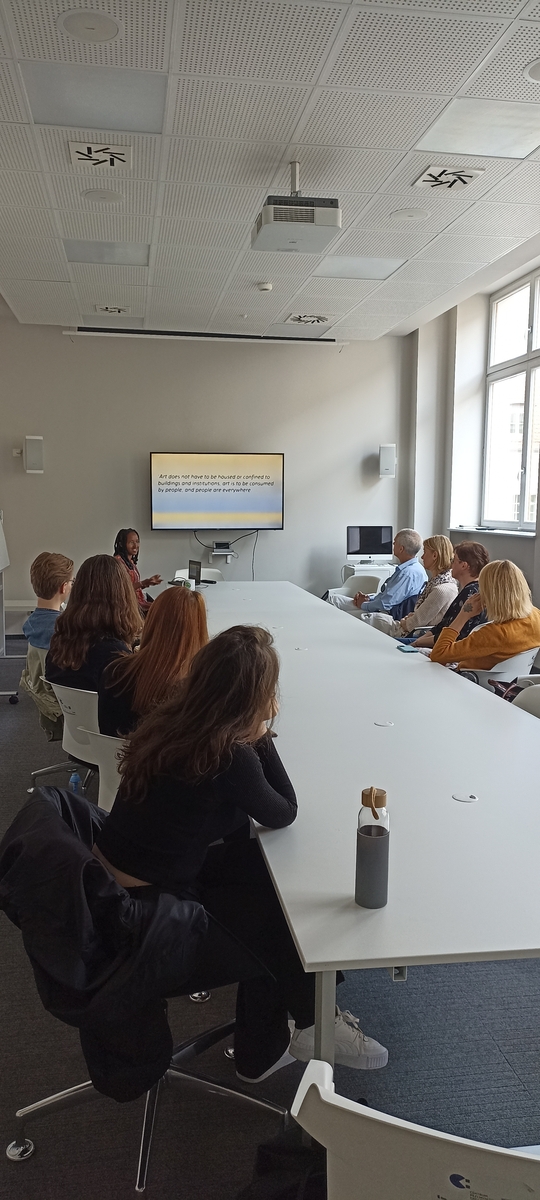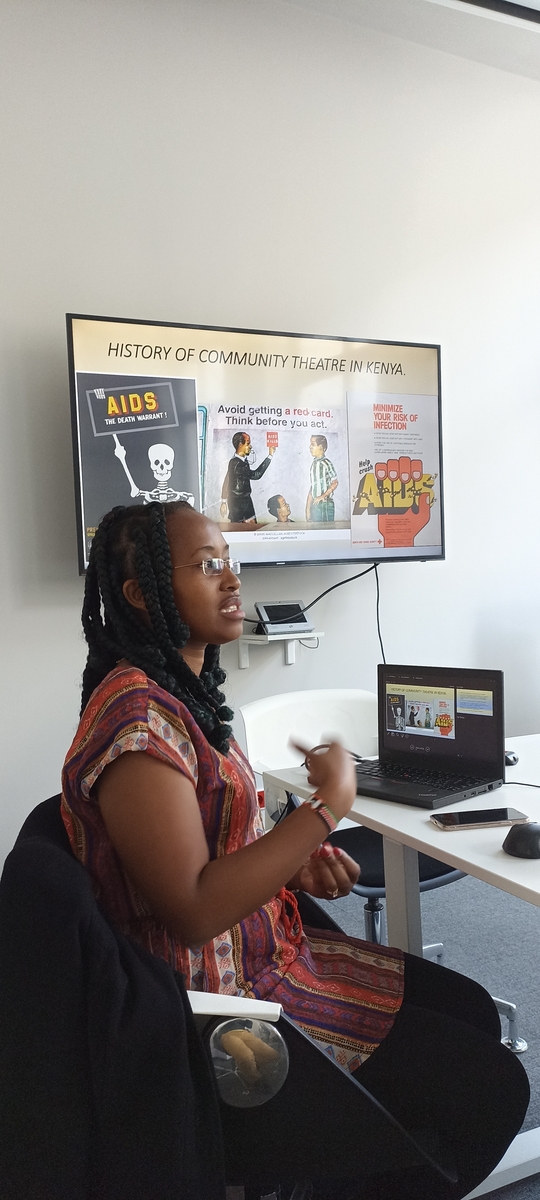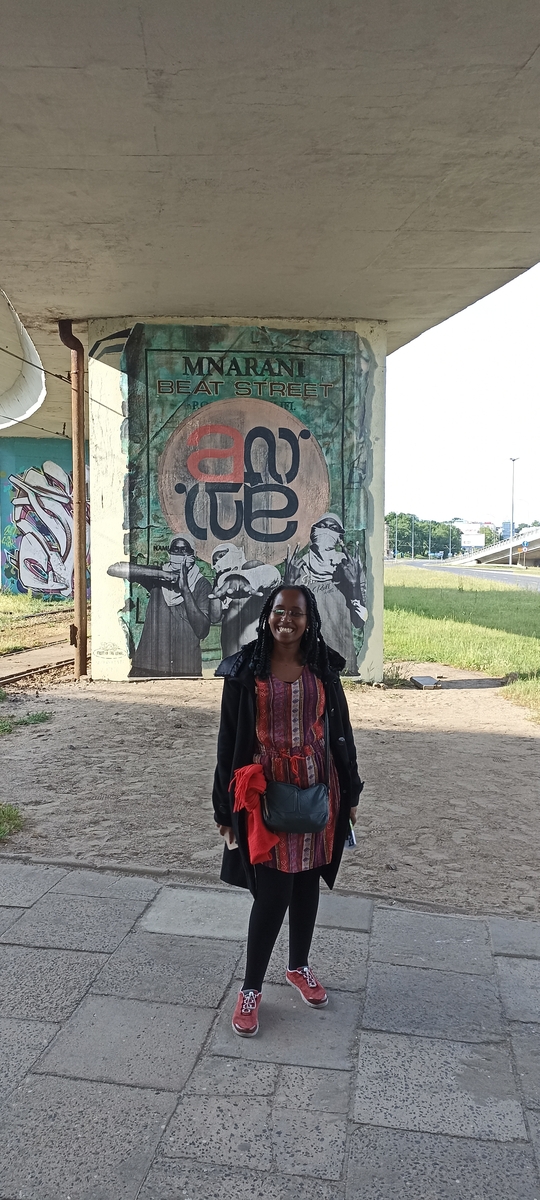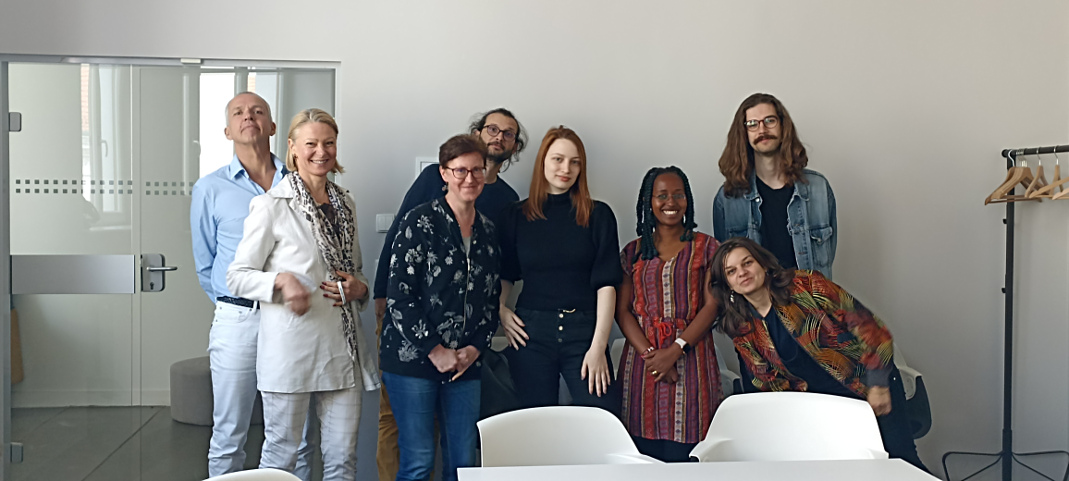Students and teachers at the Academy of Art in Szczecin learned recently about the work of a theater company that takes its message directly to communities on the Kenyan coast.
In an hour-long talk at the TPAAE partner institution, theatre producer and director Caroline Ngorobi detailed the activities of Jukwaa Arts Productions, a Mombasa-based troupe that educates audiences by engaging members in discussions that aim to shatter the stigmas and stereotypes that are commonplace in Kenyan society.
Ngorobi made the trip to Poland at the tail end of a May tour that took her to workshops in Belgium and Germany. The visit to Poland lays the ground for Jukwaa’s participation in the third iteration of the DUOS Festival, which set for early 2023 in Kilifi.
Calling the troupe’s practice ‘theater in unorganized spaces’, Ngorobi described Jukwaa’s use of what she termed ‘magnet theater’ to raise awareness among audiences of the issues addressed in the stories and situations Jukwaa artists act out in village squares, streets and markets. The technique features plots that rise quickly to points of tension and then pause to elicit responses, usually about proposed solutions to the problems portrayed, from those watching the action unfold.
“When the play stops, the conversations start,” Ngorobi told the assembly, which included TPAAE administrators, DUOS Festival curators and artists, and project partners from the National Museum in Szczecin. “When we get them talking, it reinforces the points we are trying to get across in our plays.”
Developed in Kenya at the height of the AIDS crisis, when producers found one-off theater performances ineffective in communicating safe-sex messages, magnet theater sets strong, simple storylines against minimalist backdrops that are created on-site by actors and technicians. The impromptu nature of these venues leaves viewers without places to sit. That their attention might initially be devoted to other tasks means Jukwaa actors must work quickly to engage their audience.
Jukwaa productions often feature experts on the given subject to provide commentary, and a designated ‘facilitator’ that works during performance pauses to guide audiences in role-playing exercises that stimulate conversation. Depending on the goals of the organizations and enterprises underwriting the shows, the Jukwaa team rolls out its hour-long actions in series that touch on individual aspects of a given issue or conflict.
“We come back a couple of times a month and aim for an 80-percent retention rate for each audience,” said Ngorobi, who notes that some Jukwaa series productions have run out to a year in duration. “Repetition increases the impact of our performances.”
Ngorobi said Jukwaa productions bring strategies for dealing with pressing societal issues to the people suffering under them. She described shows devoted to patriarchy, sexism in the workplace and police brutality as typical and cited social interactions and policy outcomes that have improved relations among groups in targeted areas. Sponsors range from non-governmental organizations with dedicated missions to private companies that are seeking to change the behaviors among users of their products and services.
Jukwaa’s theater outreach ranges to holiday pageants and pantomimes, and to activism and artists-in-residence programs. An annual festival called Bahari Huru, which Jukwaa took to five coastal beaches,
combines both. Staged in October 2021, the inaugural series featured photography, poetry and music created by seven artists that studied for three months with marine experts to make works that raised awareness about environmental degradation.
Formed in 2015, Jukwaa takes supporting artists in Mombasa as an allied mission. A weekly Art Cocktail mixer supplies performers, playwrights, poets and musicians with both a venue in which to develop works and an audience from which to draw the feedback necessary for their improvement.
Further, Ngorobi describes Jukwaa as an important cultural archive, preserving and presenting cultural traditions that might otherwise be lost as people leave behind their villages for life in urban centers. She said the safe spaces that Jukwaa provides for difficult conversations in Kenyan society are unavailable elsewhere.
In addition to her time with host Lukasz Jastrubczak at the Art Academy, Ngorobi also visited the NMS for a look at items contained in Poland’s largest collection of African art. Curator Ewa Pradzynska guided her on a tour of the West African villages that form part of the permanent exhibition at the museum’s main building, which overlooks the Oder River.
text by Rick Butler

